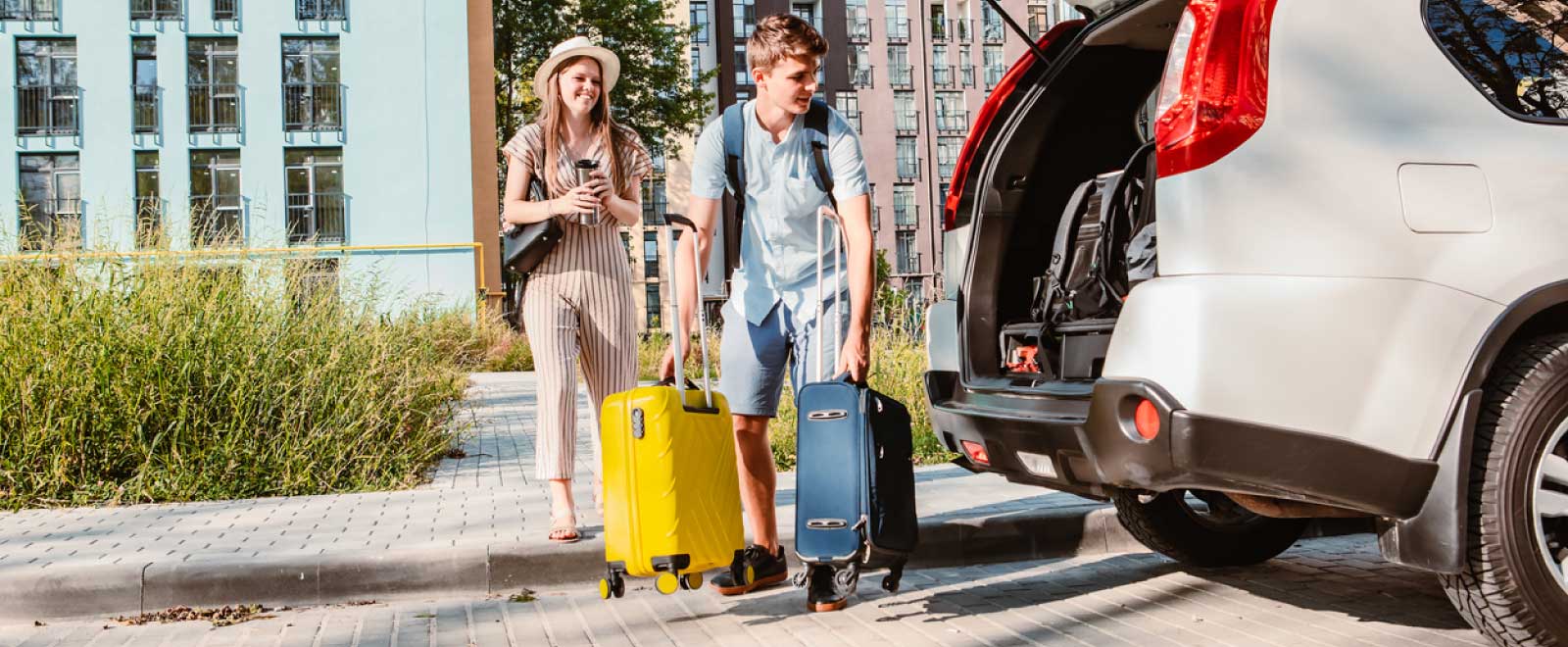Travel tips to keep the identity thieves out of the picture
As summer vacation season heats up, your exposure to possible identity theft increases. While traveling, you are especially vulnerable by virtue of what you pack and take with you. Debit cards, credit cards, forms of identification, travel documents, and cash are all travel necessities, which make you a target to potential thieves.
Of course, the problem goes beyond the common pickpocket. Identity theft can also happen with a compromised ATM, accessing your online accounts via an open Wi-Fi network, or a piece of mail in your mailbox – to name just a few.
Yes, the risk for identity theft is higher when traveling; but that should not limit your vacation plans. In addition to planning the details of your trip, you need remain cautious and aware of your surroundings, protecting yourself and taking steps to ensure your identity is safe.
Before you leave for vacation
- Sign up for card alerts with your credit union or bank
Financial institutions are pretty good at spotting dubious purchases. If your financial institution features a card alert program, sign up—typically for free (account alerts are good to have anytime, traveling or not). When you’re set for a vacation, let the bank or credit union know when and where you’ll be traveling to avoid account alerts when they see an expensive dinner charge in San Diego. - Batten down the hatches at home
Obviously, thieves see opportunity in an empty house. Lock your home up tight and ask a neighbor or friend to check it periodically to make sure it stays that way. Put a hold on the newspaper, any package deliveries, and most importantly, your mail. A week’s worth of mail may include credit card statements, bills and other offers for new credit accounts which all can be used to compromise your identity. - Book with a credit card
When it comes to fighting fraud, credit cards have a little more firepower than debit cards, and unlike a debit card, a credit card is not directly linked to your other bank accounts (savings, overdraft, etc). Whether you’re booking a flight or a tour bus at a port of call, use your credit card—not your debit card. Plus, some credit cards even provide travel insurance. -
Take only what you need
Here’s a chance to thin out your wallet or purse. Leave unused or lightly used cards and personal information at home under lock and key. Take only what you need for traveling and reduce your exposure from a stolen purse or wallet.
While on the road
- Keep the online chatter to a minimum
Better yet, avoid social media postings altogether that show you thousands of miles from home. Advertising that you are on vacation may be an open invitation to would-be thieves. - Lock down your hotel room
When away from your hotel room for the day, or even for breakfast, use a hotel safe to lock your important travel documents, ID, cash, or cards. If there’s no hotel safe available for you to use, consider locking valuables in your luggage. - Use your credit card
Generally, it’s a good idea to use your credit card for purchases while on vacation. Using your credit card is a great alternative to cash or a debit card. Your credit card is good way to organize and keep track of your purchases while traveling and payoff your expenses with one payment at the end of your trip. In the event that your credit card is stolen, it can be locked from additional purchases, which is not the case with cash.
Reserve your debit card for accessing cash when needed. Always use a bank ATM whenever possible to avoid skimmers and scammers. - Use secure Wi-Fi only
Don’t use unsecured Wi-Fi if you plan on accessing your bank account or making purchases (like booking a tour) using a bank card. Wi-Fi hijackers can potentially steal the information that is transmitted over an unsecured Wi-Fi connection. - Travel insurance
If you’re looking for a little more peace of mind while away, consider buying travel insurance. Travel insurance can’t keep the thieves at bay, but it can help cover expenses related to theft.

Coming home
Once home, check all of the accounts that you used while traveling. Confirm that all purchases are yours (keep your receipts) and report anything you didn’t buy to the financial institution on your card. The sooner you open a dispute of a charge with your card carrier, the faster the investigation and resolution.
Learn more about avoiding identity theft this summer through KEMBA’s consumer educational resources, or stop into one of our KEMBA Financial Credit Union locations today. Or call a KEMBA Member Service Representative today at 800.282.6420, option 4.

